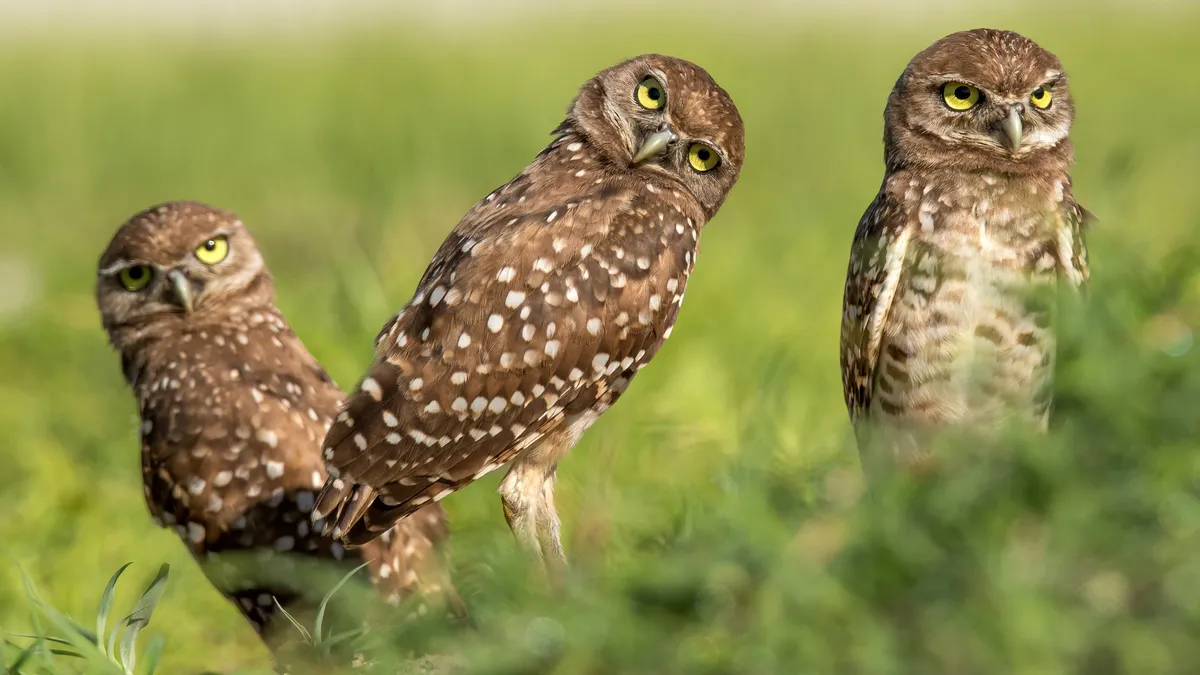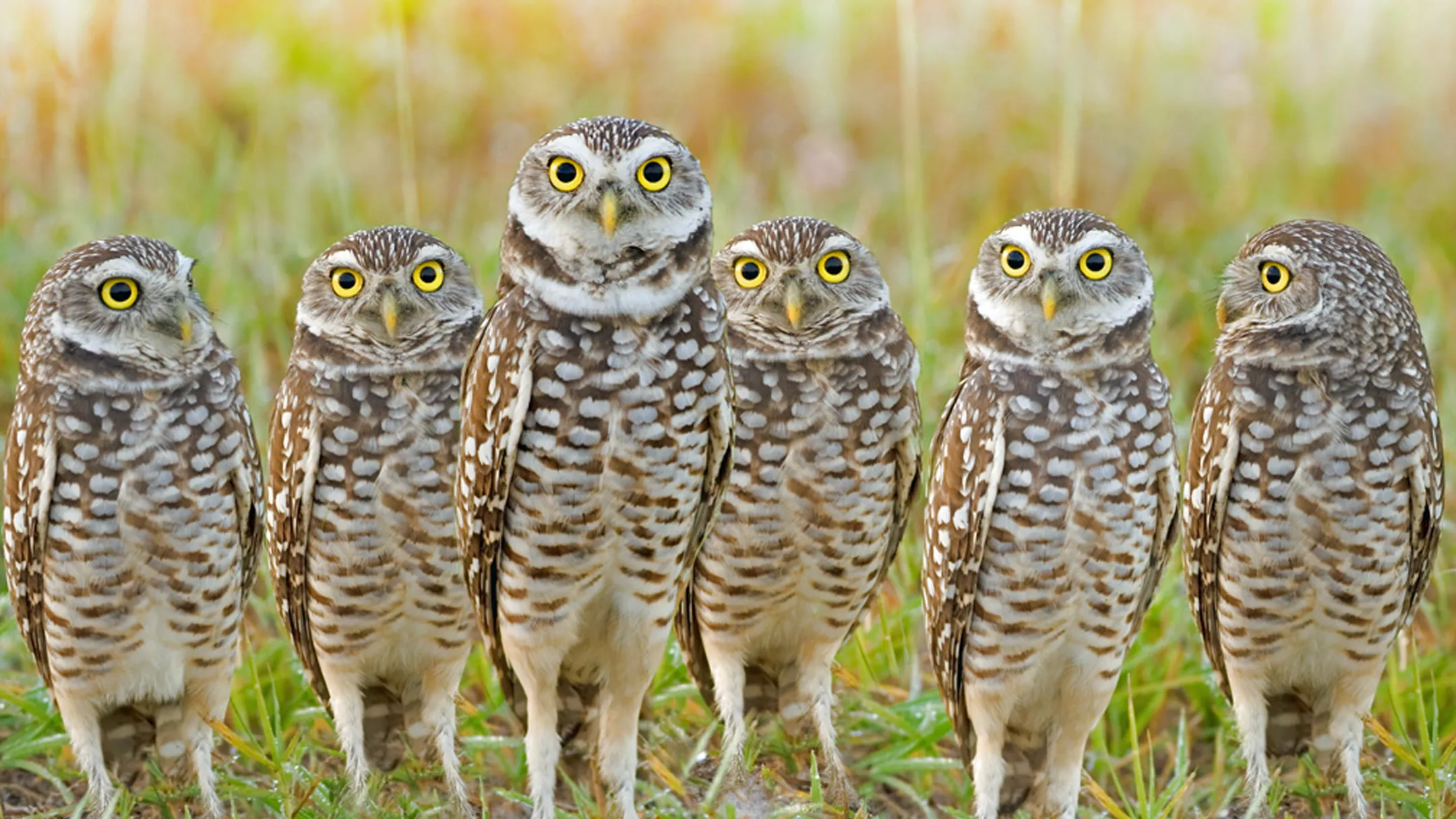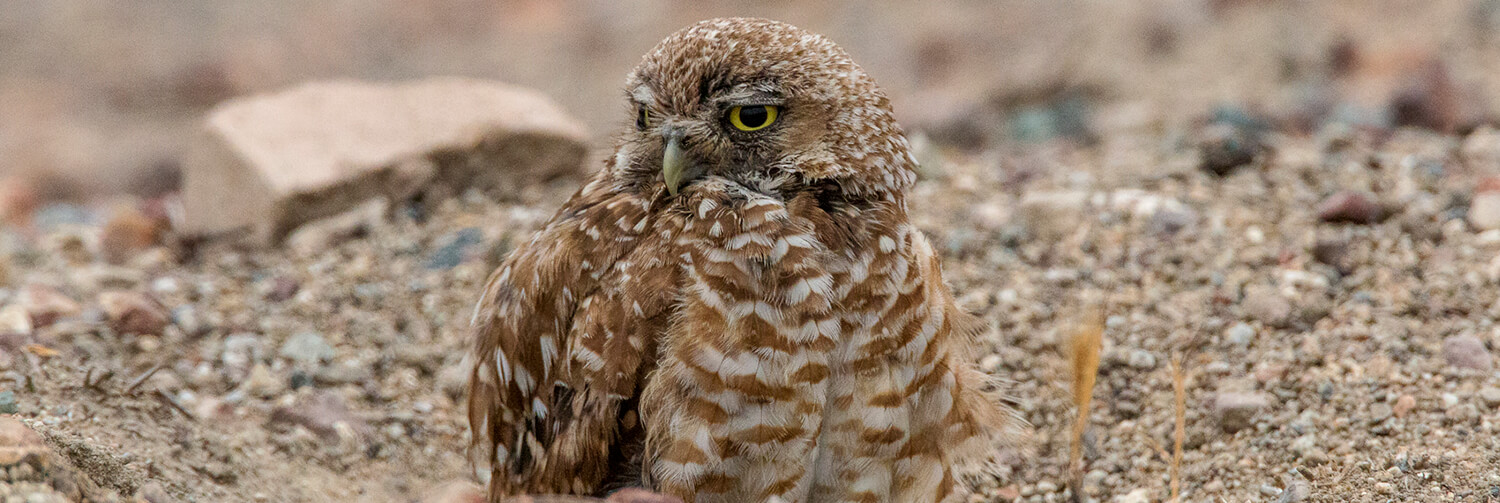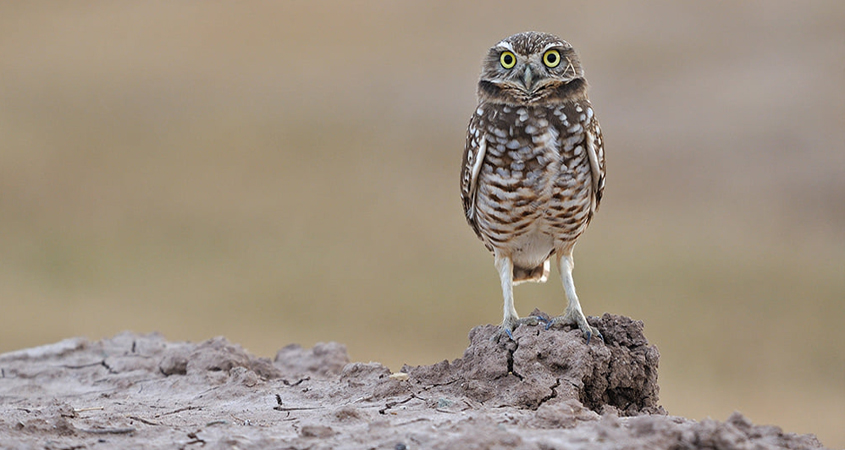





 Habitat Grasslands Burrowing Owls live in open, treeless areas with low, sparse vegetation, usually on gently sloping terrain |
 They also eat small mammals like mice, some reptiles, and amphibians. |

|
When they move into an abandoned burrow, these little owls do some "decorating." They gather grass, feathers, and even chunks of animal dung and line their underground home with it. They also leave some just outside the entrance. Biologists think the items might help keep the inside of the tunnel at just the right temperature. The dung outside would attract insects that the owls can eat.
A female burrowing owl lays about 3 to 12 eggs in her burrow. She sits on the eggs for about 1 month until they hatch. Her mate stands guard outside the burrow and brings her food. The young chicks stay in the burrow for about 2 weeks before they start stepping outside. Their parents bring them insects to eat and practice pouncing on. When they are about 6 weeks old, the little owlets begin to fly and hunt their own meals.
Burrowing owls live in wide, flat habitat like grasslands and even fields near cities. When parking lots, shopping centers, and big blocks of houses are built, they may lose their homes and hunting grounds. Pesticides hurt these birds, too, because they eat insects.